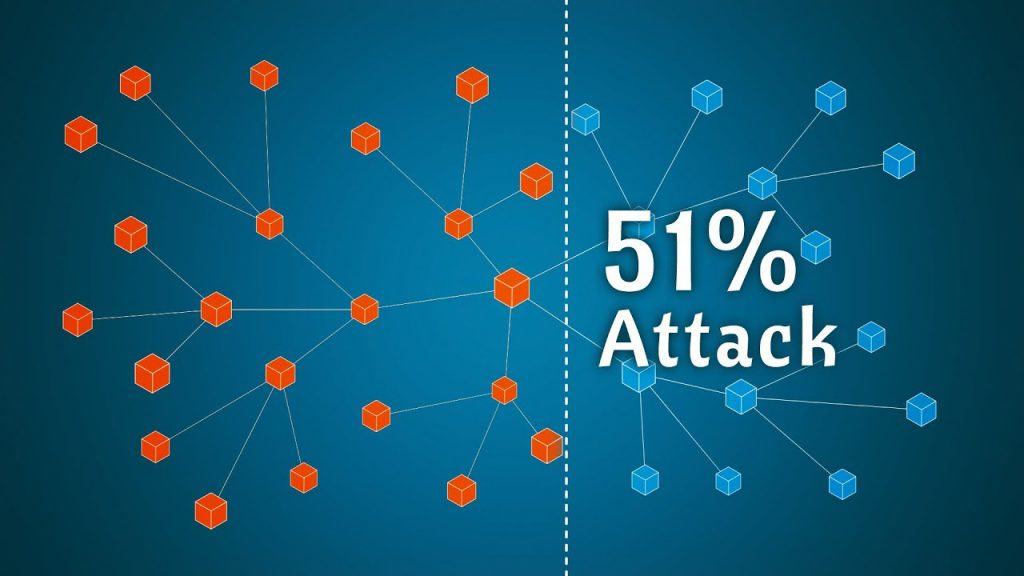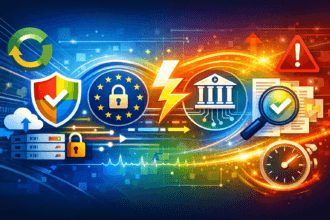
In a period where digital connectivity is all over the place, the privacy of personal data has turned into a basic concern. The internet has changed how we convey, work, and direct business, however, it has likewise acquainted phenomenal difficulties related to privacy data. From social media platforms to E-commerce sites and then some, people are progressively presented with potential dangers related to the abuse and misuse of their data.
In this article, we dive into the complexities of data privacy in the digital era exploring the significance of defending personal data on the internet and looking at the actions people and associations can take to ensure the assurance of delicate data. Besides, we will talk about Earthlink’s availability and its significance in data privacy.
The Evolution of Data Privacy in the Digital Age
Rapid technological development has inovate of how information is gathered, handled, and used. With the expansion of computerized stages and the mix of modern calculations, the assortment of personal data has turned into a foundation of numerous online services. From user preferences and perusing history to segment data and personal conduct standards, organizations assemble immense measures of information to upgrade their showcasing techniques and improve user experiences. In any case, this advancement has raised worries about the degree to which individual data is being shared, put away, and possibly taken advantage of without users’ unequivocal assent.
The Impact of Technological Front Line of Data Privacy
As technology continues to evolve, the limits between the physical and digital domains are progressively obscured. The approach of the Internet of Things (IoT), AI (artificial intelligence), and big data analytics have essentially extended the extent of information assortment, prompting the formation of far-reaching profiles that offer experiences into people’s daily routines. While these progressions have without a doubt worked with comfort and effectiveness, they have likewise enhanced the dangers related to information breaks, data fraud, and unapproved observation.
Earthlink Availability and Its Role in Data Privacy
Amid growing concerns about data privacy, the availability of reliable and secure internet services has become crucial. Earthlink, known for its obligation to convey high-speed internet and powerful safety efforts, assumes a critical part in ensuring that users can get to the internet while keeping up with their privacy. With Earthlink’s availability of user data insurance and encryption conventions, individuals and businesses can explore the computerized scene with a more noteworthy feeling that everything is good, diminishing the weakness of their delicate data to potential digital dangers and unapproved access.
Challenges and Vulnerabilities in Data Privacy
Despite the execution of different security protocols and guidelines, the computerized scene stays powerless against a horde of dangers that compromise data privacy. Cyberattacks, information breaks, and the unapproved offer of individual data keep on presenting huge difficulties for people and associations the same. Additionally, the expansion of virtual entertainment stages and the broad sharing of individual substances have exacerbated worries about the abuse of information for designated publicizing and manipulative purposes.
Regulatory Frameworks and Compliance Measures
In response to the heightened worries about data privacy, Gov and regulatory bodies have presented different structures and consistency measures to lay out rules for the assortment, stockpiling, and utilization of individual data. Drives like the European Association’s General Data Protection Regulation (GDPR) and the California Consumer Privacy Act (CCPA) in the US address huge strides toward upgrading straightforwardness and responsibility in information-taking care practices. These guidelines plan to engage people with more noteworthy command over their data and authorize stricter punishments for rebelliousness, in this way boosting associations to focus on data privacy as a vital part of their activities.
Data Encryption and Anonymization Techniques
In addition to regulatory systems, the execution of hearty information encryption and anonymization procedures has arisen as a basic methodology for relieving data privacy risks. Encryption conventions, for example, Transport Layer Security (TLS) and Secure Socket Layer (SSL), empower the solid transmission of information over networks, shielding touchy data from potential snooping and capture attempts. Additionally, anonymization methods, including information covering and tokenization, work with the de-distinguishing proof of individual information, guaranteeing that people’s characters stay safeguarded while as yet taking into consideration the use of information for logical and research purposes.
Best Practices for Protecting Personal Information Online
As individuals navigate the digital landscape, adopting proactive measures to safeguard their personal information is paramount. Implementing robust security measures, exercising discretion while sharing sensitive data, and staying informed about privacy policies and terms of service are essential practices that can significantly enhance data privacy.
Strengthening Password Security and Authentication Protocols
One of the fundamental practices for protecting personal information online involves the implementation of strong and unique passwords across various digital platforms. By integrating a mix of capitalized and lowercase letters, numbers, and exceptional characters, people can sustain their records against unapproved access. Moreover, the reception of multi-factor authentication (MFA) adds a layer of safety, expecting users to check their personalities through different confirmation techniques, for example, SMS codes, biometric acknowledgment, or equipment tokens.
Heightened Awareness of Phishing and Social Engineering Attacks
Phishing and social engineering attacks address normal strategies utilized by cybercriminals to mislead people into unveiling their data or starting deceitful exchanges. Uplifted consciousness of dubious messages, messages, and calls, alongside the act of checking the genuineness of solicitations for delicate data, is fundamental in moderating the dangers related to these malevolent exercises. Teaching people about the indications of phishing endeavors and the significance of practicing alert while interfacing with new or spontaneous correspondence channels can altogether diminish the probability of succumbing to these misleading practices.
Regular Software Updates and Security Patches
Maintaining the security of digital devices and software applications is imperative for protecting personal data from potential vulnerabilities and exploits. Regularly updating operating systems, antivirus software, and applications with the latest security patches and bug fixes ensures that known weaknesses are addressed and that devices remain resilient against emerging threats. Additionally, enabling automatic updates and implementing firewalls and intrusion detection systems contribute to the overall defense against unauthorized access and malicious activities.
The Future of Data Privacy and Ethical Considerations
As technological developments keep on rethinking the digital landscape, the fate of data privacy hinges on the reception of moral contemplations and the foundation of extensive systems that focus on the insurance of people’s freedoms and freedoms. Empowering straightforwardness, advancing information proficiency, and encouraging a culture of dependable information stewardship are indispensable to developing a climate where data protection is maintained as a principal common liberty instead of a simple administrative commitment.
The Role of Ethical Data Governance and Transparency
Ethical data governance encompasses the principles and practices that govern the responsible collection, processing, and utilization of data, emphasizing the need for transparency, accountability, and user consent. By adhering to ethical data practices, organizations can cultivate trust among their users, fostering long-term relationships based on mutual respect and transparency. Communicating clear and concise privacy policies, providing users with accessible tools for managing their data preferences, and seeking explicit consent for data collection and utilization are pivotal steps toward establishing a culture of ethical data governance and reinforcing the foundations of data privacy in the digital age.
Fostering Data Literacy and Empowerment
Promoting data literacy among individuals and communities plays a pivotal role in fostering a comprehensive understanding of data privacy and security. Equipping individuals with the necessary knowledge and skills to navigate digital platforms, comprehend privacy policies, and make informed decisions about their data empowers them to assert greater control over their online experiences and actively participate in shaping the discourse surrounding data privacy. Educational initiatives, workshops, and accessible resources that promote digital literacy and data awareness contribute to the cultivation of an informed and proactive society that values the protection of personal information as an integral aspect of digital.
Conclusion
In the digital age, the security of individual data on the internet has turned into a central concern, requiring the execution of vigorous techniques and systems to protect data privacy. As technological headways keep on reshaping the advanced scene, the expansion of information assortment and use highlights the basic requirement for exhaustive measures that focus on straightforwardness, responsibility, and user assent. Regulatory systems, information encryption procedures, and best practices for protecting individual data online act as fundamental points of support in strengthening information security and limiting the dangers related to cyber threats and unapproved access.








